Anti-Mouse IL-12 In Vivo Antibody - Low Endotoxin
- SKU:
- IVMB0023
- Product Type:
- In Vivo Monoclonal Antibody
- Clone:
- C17.8
- Protein:
- IL-12
- Isotype:
- Rat IgG2a kappa
- Reactivity:
- Mouse
- Synonyms:
- NKSF
- TSF
- Maturation Factor
- Cytotoxic Lymphocyte Maturation Factor (CLMF)
- P40
- Research Area:
- Cytokines, Chemokines & Receptors
- Endotoxin Level:
- Low Endotoxin
- Host Species:
- Rat
- Applications:
- ELISA
- ICFC
- IP
- Neutralizing
- WB
Description
| Product Name: | Anti-Mouse IL-12 In Vivo Antibody - Low Endotoxin |
| Product Code: | IVMB0023 |
| Size: | 1mg, 5mg, 25mg, 50mg, 100mg |
| Clone: | C17.8 |
| Protein: | IL-12 |
| Product Type: | Monoclonal Antibody |
| Synonyms: | NKSF, TSF, Maturation Factor, Cytotoxic Lymphocyte Maturation Factor (CLMF), P40 |
| Isotype: | Rat IgG2a κ |
| Reactivity: | Mouse |
| Immunogen: | Purified CHO expressed Recombinant Mouse IL-12 p70 |
| Applications: | ELISA, ICFC, IP, N, WB |
| Formulation: | This monoclonal antibody is aseptically packaged and formulated in 0.01 M phosphate buffered saline (150 mM NaCl) PBS pH 7.2 - 7.4 with no carrier protein, potassium, calcium or preservatives added. |
| Endotoxin Level: | < 1.0 EU/mg as determined by the LAL method |
| Purity: | ≥95% monomer by analytical SEC >95% by SDS Page |
| Preparation: | Functional grade preclinical antibodies are manufactured in an animal free facility using only In vitro protein free cell culture techniques and are purified by a multi-step process including the use of protein A or G to assure extremely low levels of endotoxins, leachable protein A or aggregates. |
| Storage and Handling: | Functional grade preclinical antibodies may be stored sterile as received at 2-8°C for up to one month. For longer term storage, aseptically aliquot in working volumes without diluting and store at -80°C. Avoid Repeated Freeze Thaw Cycles. |
| Applications: | ELISA, ICFC, IP, N, WB |
| Reactivity: | Mouse |
| Host Species: | Rat |
| Specificity: | Mouse, IL-12/IL-23 p40 subunit (monomer, homodimer and heterodimer IL-12 p35/p40 or IL-23 p19/p40) |
| Immunogen: | Purified CHO expressed Recombinant Mouse IL-12 p70 |
| Concentration: | ≥ 2.0 mg/ml |
| Endotoxin Level: | < 1.0 EU/mg as determined by the LAL method |
| Purity: | ≥95% monomer by analytical SEC >95% by SDS Page |
| Formulation: | This monoclonal antibody is aseptically packaged and formulated in 0.01 M phosphate buffered saline (150 mM NaCl) PBS pH 7.2 - 7.4 with no carrier protein, potassium, calcium or preservatives added. |
| Preparation: | Functional grade preclinical antibodies are manufactured in an animal free facility using only In vitro protein free cell culture techniques and are purified by a multi-step process including the use of protein A or G to assure extremely low levels of endotoxins, leachable protein A or aggregates. |
| Storage and Handling: | Functional grade preclinical antibodies may be stored sterile as received at 2-8°C for up to one month. For longer term storage, aseptically aliquot in working volumes without diluting and store at -80°C. Avoid Repeated Freeze Thaw Cycles. |
IL-12 plays a role in resistance against pathogens via the differentiation of naive T cells into Th1 cells. It stimulates the growth and function of T cells, blocks formation of new blood vessels, and contributes to antimycobacterial immune response. In addition, it promotes the production of IFN-γ and TNF-α and reduces IL-4 mediated suppression of IFN-γ. Consequently, this enhances the immunostimulatory and immunomodulatory effects of IFN-γ. In addition, there appears to be a link between IL-2 and the signal transduction of IL-12 in NK cells, which enhances the functional response of IL-12 via IFN-γ production and killing of target cells. Furthermore, IL-12 is thought to be associated with autoimmunity. IL-12 was shown to worsen the condition when administered to people already suffering from autoimmune diseases. Comparatively, inhibition of IL-12 (either through IL-12 gene knock-out in mice or treatment of mice with IL-12 mAbs) improved the disease.
| Technical Datasheet: | View |
| Protein: | IL-12 |
| Research Area: | Immunology, Innate Immunity |

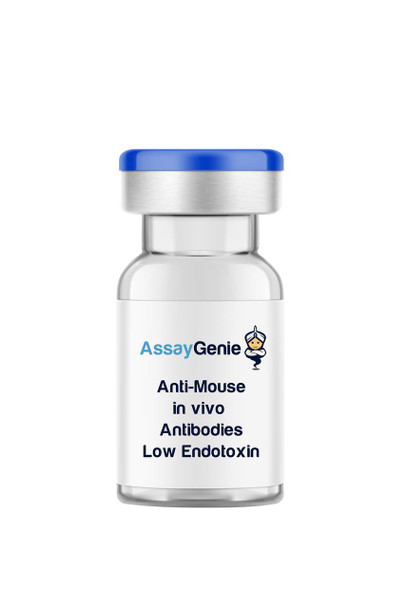

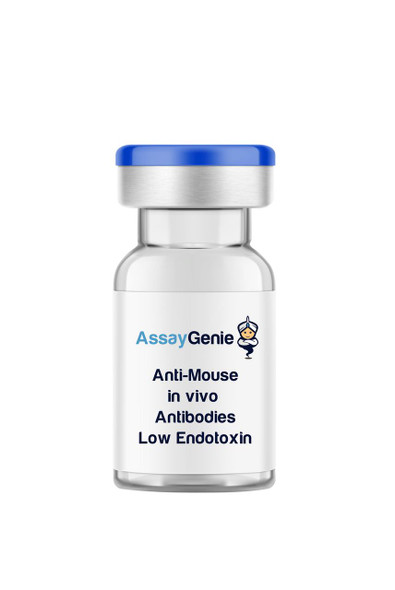
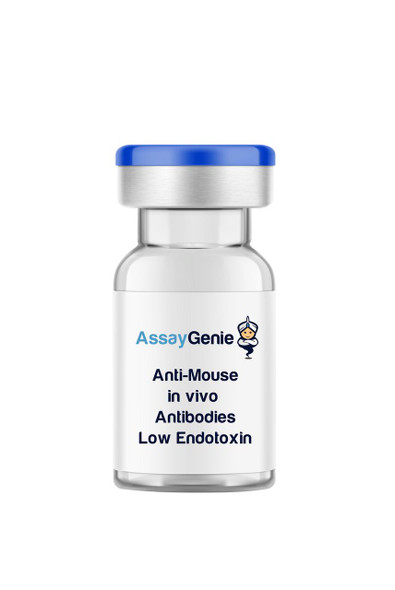
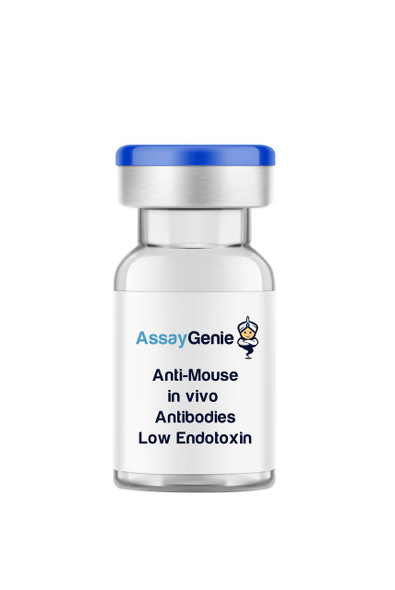
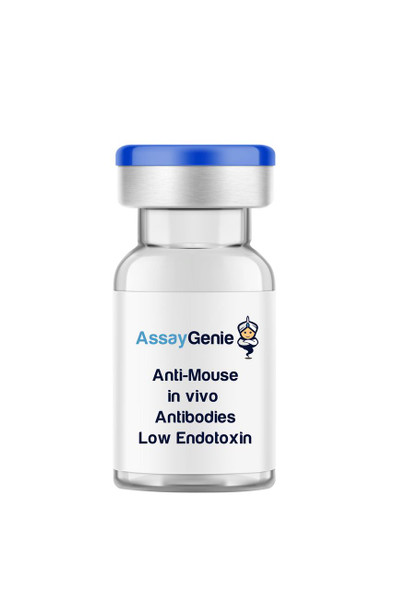
![Anti-Mouse IL-21R [4A9] In Vivo Antibody - Low Endotoxin Anti-Mouse IL-21R [4A9] In Vivo Antibody - Low Endotoxin](https://cdn11.bigcommerce.com/s-39x6lpnvxv/images/stencil/590x590/products/120014/118197/anti-mouse-il-21r-4a9-in-vivo-antibody-low-endotoxin__35995__29774.1698937819.jpg?c=1)
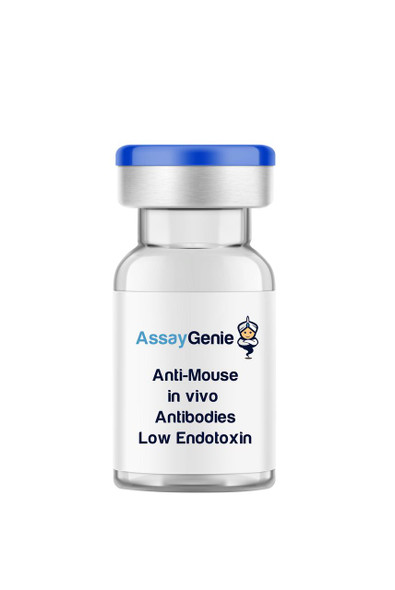
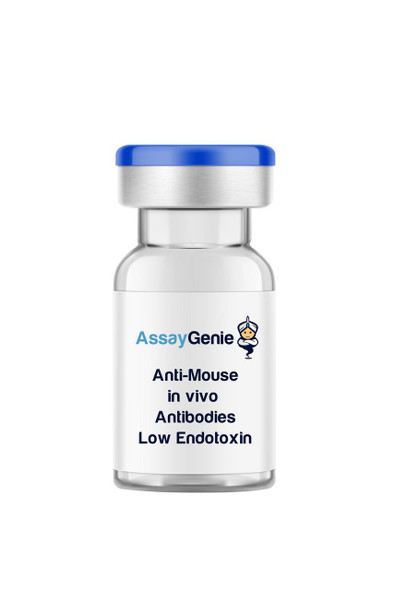
![Anti-Mouse IL-4 [11B11] In Vivo Antibody - Low Endotoxin Anti-Mouse IL-4 [11B11] In Vivo Antibody - Low Endotoxin](https://cdn11.bigcommerce.com/s-39x6lpnvxv/images/stencil/590x590/products/119834/118017/anti-mouse-il-4-in-vivo-antibody-low-endotoxin__50770__48277.1698937734.jpg?c=1)
